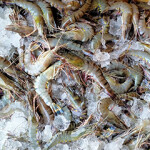WTO talks on curbing fishing subsidies may restart in July

There are some signs that talks at the World Trade Organization on ending harmful fishery subsidies may restart next month after being suspended due to the coronavirus outbreak.
A Heads of Delegation meeting has been announced by the negotiations chair for 25 June to begin discussing the latest draft proposal for a deal. A follow-up meeting for delegation leaders on 21 July will set a potential Autumn work program for negotiators.
“We’re basically waiting for the WTO to fully open up again,” a Western delegate to the talks told SeafoodSource. “They’ve taken the first step, setting up a big room for meetings with one person per delegation, but that won’t work for the fisheries negotiations. I’ve heard speculation that maybe we start meetings [of regular delegation members] again in July. There’s some work being done behind the scenes, but my sense is that it’s somewhat limited.”
Observers following the talks see good chances of a successful conclusion.
“The WWF continues to be optimistic on an outcome,” according to Michele Kuruc, a fishery subsidies expert at the WWF. Kuruc previously told SeafoodSource an outline for a deal should include cutbacks on fuel subsidies for their fishing fleets, which are currently offered by many countries, including China. “There is limited progress right now on the negotiations due to COVID … Virtual meetings were not possible for a number of reasons.”
Santiago Wills, the chair of the talks at WTO buildings in Geneva, “remains very committed to re-engage with members as soon as restrictions due to the pandemic are lifted, allowing for a continuation of technical and political negotiations,” Kuruc said.
The WTO has been pushing for a deal, but negotiations stalled last year when competing proposals caused a split in consensus. The world body hasn’t been able to strike any major deal for several years and is currently seeking a new director general against a backdrop of discontent in the U.S., which accuses the body of going easy on Chinese trade practices. U.S. Trade Representative Robert Lighthizer has criticized the structure of the WTO and suggested that negotiations among smaller groups of “like-minded” WTO countries is the best path to progress, according to Reuters.
But the growing tension between China and the U.S. hasn’t affected talks between the two countries on fishing subsidies, Kuruc said.
“As far as China and the U.S. and tensions based on other issues spilling over onto these negotiations, they do not seem to be directly impacting the technical negotiations,” Kuruc said.
Urgency has been added to the talks by suggestions that the Chinese fleet is much larger than previously thought. China has five times as many vessels in its distant-water fleet as the officially stated 2,500, which is frequently cited in official government figures, according to a report from London, United Kingdom-based Overseas Development Institute.
India, meanwhile, has been seeking special status in any deal that would allow for continued payments of subsidies deemed for artisanal and developing country fisheries. Fears have also been growing that caused economic damage from the coronavirus pandemic could make developing African nations –major debtors to Chinese banks – more amenable to increasing Chinese fleet access to already overstretched fishing stocks.
Photo courtesy of Martin Good/Shutterstock






Share